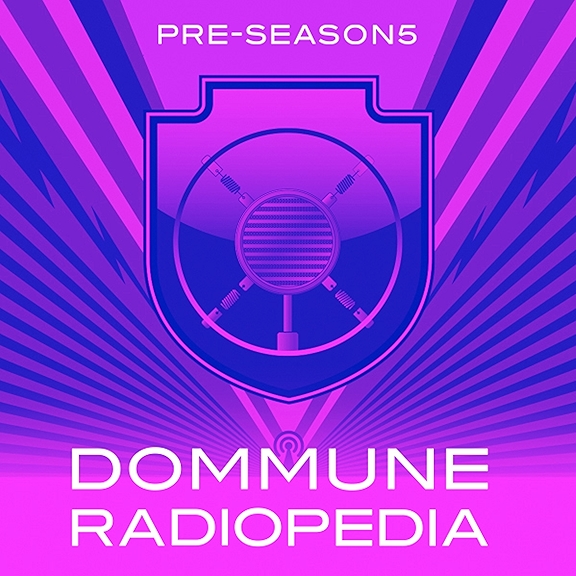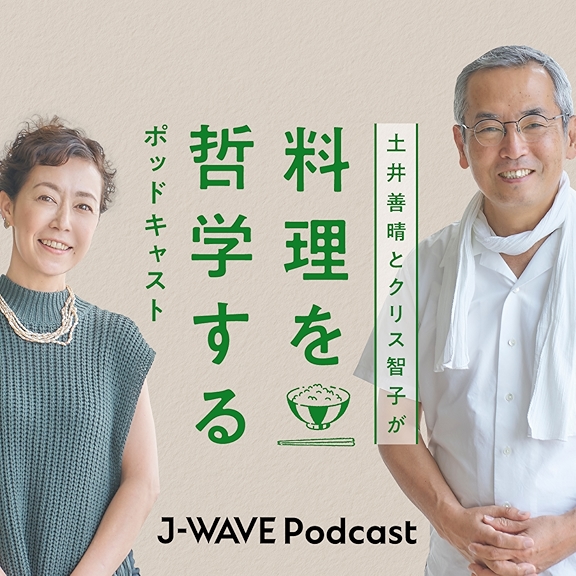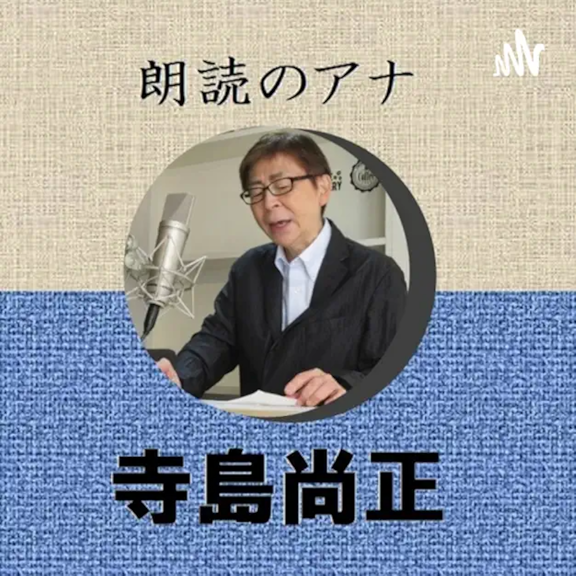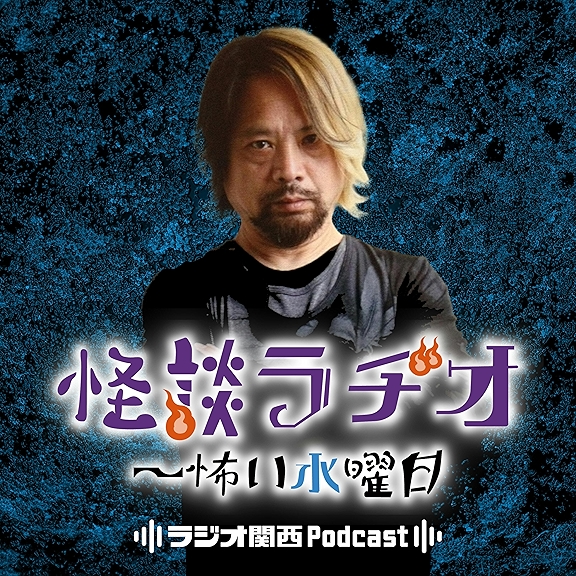
Tracy Lamourie Founder LAMOURIE MEDIA an Award Winning Publicist has been featured in Rolling Stone, NBC, CBC, HuffPost and here with us today to talk about how Self confidence can lead to success.
Ari Gronich
0:03
Welcome back to another episode of create a new tomorrow I am your host Ari Gronich. And today I have with me Tracy Lamourie. Tracy is a PR expert who I'm going to not even read her like her normal intro, I'm gonna let her tell you about it. But this woman made her career by taking about 20 years or so of her life, and setting free an innocent man who was on death row. So hey, you know, I'm gonna let her tell you a little bit about that story. And then we'll get into an awesome conversation that hopefully will help you create a new tomorrow for yourself, activate your vision for a better world, do something big in your life, like Tracy has. So Tracy, let's uh, let's get into it. Tell us a little bit about you.
TL
Tracy Lamourie
0:47
Hi, there. So yeah, I'm based in Canada, I'm Canadian girl working usually internationally around the world, when it's not the middle of COVID. We're on the other side of that level. So our borders are a little slow and opening up. So I've been here, no basement doing my magic. So I'm an international award winning publicist, working across borders and across industries. And for people who don't really know what that is, is basically getting people in the news getting people elevating their profile, whether they're entrepreneurs, executives, musicians, creatives, authors, all that. But this just happened for me because of a natural kind of, I should never say natural. But what I started doing it for 20 years, I ended up here. And so all the VIP parties and all the travel and all the super cool, amazing things that go with being a publicist, were in my original plan, I was originally an activist in my 20s with my husband, Dave, Markinson, married 26 years now we've done all this together, starting with a little radio show in Toronto a long, long time ago to college radio. And then when that was no more was the early days of the internet, we still wanted to have a voice, you know, to change the world, to, you know, make things more equal, like you know, all those things that you're passionate about in your 20s. But I'm still passionate about today. And we found out just in a little curved corner of the early into the early interwebs. About a man named Jimmy Dennis would aid for this little add on line. And he's with being a I'm on death row. I'm not looking for a pen pal, I'm not looking for a girlfriend. Because a lot of those preserving unpolished Western, I'm innocent, and I need help. So my husband and I, we wouldn't be like I want it to be. And if people asked us what made you actually write, we actually wrote a letter we wrote to him and said to tell us more. And I think partly because obviously we were activists, but also we had that radio show not long before, we were still in that information gathering. And so we put pen to paper and we said tell us about it. And we wrote a letter into death row. And he wrote back with a 28 when we were 28 years old, and he was 27. Even back with a 28 page letter on both sides. And all the legal documents that was in the cell breaking down the hope is that there was no brochures or pamphlets or websites or anything. And we got this and what do we do? People said Don't you know, how did you? Why did you do what you did? But again, why don't we write that letter? We wrote the letter. And then once we did, here's a person who wrote back, you know, 28 pages, who's clearly desperate and needs help. So what do you do with that? You just say it was a fun read, you know? So obviously we like, Oh, well, gee, what are we like? We have to do something about it. We had no money we had no, I wasn't a publicist, we certainly weren't lawyers. But we thought, Well, if we're this upset, reading just this much, you know, maybe we can put it on these interwebs and somebody who has the ability, somebody who has money, maybe somebody will buy a lawyer as we originally thought. So we started doing that. And ultimately, we ended up being disturbed by the death penalty in general in America through looking at that case. So there we were 28 years old. This is how I learned to write a press release. I literally went to the AltaVista precursor to Google and learn you know, for immediate release out of right that it was really hard to get attention for a case that was you know, someone was still convicted in America and in those days it was before making a murderer or was before all the wrongful conviction, serial and all those podcasts before all that so we had the internet we had the you know, email and everything but it wasn't easy. So the way that we decided to address that because it's like we were little mini publicist before we even knew PR was well if we talked about the death penalty in general as opposed to just this case and use this case as an example then maybe we'll get a more media. So we did that. We wrote up press releases for immediate release. And literally there were 28, 29 years old on CNN again we have no legal experience no PR experience not very much Media Group. And then we were on CNN on MSNBC on port TV on panel. With lawyers being interviewed by Katherine Grier, by Nancy Grace, by lay Oh my god. So it will took another 11 or 12 years, that was just, you know, not for profit, volunteer. By the way, Jimmy Dennis was freed in 29th 2017, we talk almost every day in these amazing things going on with him. He's an R&B artist now. So that's when your listeners should check that out, because the whole other story, but, you know, in terms of it another 11 years before I thought, Hey, hold on a second, because I was just in telesales, I could probably, you know, not have a life I hate, I could probably not to sit here doing sales reps were like, the skills that I built, dealing with media are actually valuable skills. And then I thought, that's my thought, like the transition and you know, help people who don't understand how to get into media, get into media, and that's when I was 41, 10 years ago, it became a business.
AG
Ari Gronich
5:55
Nice. So I'm going to unpack this a little bit. Am a unpack for you a little bit. So first of all, you know, I love this story, because it reminds me of one of my favorite stories, which is the story of Hurricane Carter. And I don't know what it is about you Canadians coming down here thinking you're going to save, you know, all the American people, but I do. I mean, I appreciate the thought, you know, it's just, it's funny to me that, exactly, exactly. But here's the question, what is it that Canada breeds into the people that makes them say, Go read it, you know, say a book of Hurricane Carter's or a little post on a little website on a brand-new thing called the inter-webs, with Bolton board services. I mean, what it wasn't like you had google it was bulletin boards and things. I mean, what made what is it that makes you do that? And that's anybody I'm joking about the Canada America?
TL
Tracy Lamourie
7:05
Well, I think what I always say to that, because I mean, you can't tell the story, I know when other sounding heroic and epic and all that stuff, right. And so I always bring dial that back because I'm not heroic or epic more than anybody else's. And this is where I say that like, even though I did that thing, right? I think that more people would do stuff like that all the time. Canadians, Americans, whoever, everybody would, instead of watching Netflix, whatever, if, if, if they actually believed they could, but people don't think how do you know, maybe I was we were naive. We were a bit when I was that kid. In hurricane you, I was privileged to meet Ruben several times, towards the end of his life, he moved to Canada, right. And so and I didn't even TV, that connection in those days about how the Canadian like, I didn't even see that even though we were watching the movie and stuff. But I think more it's a matter of feeling empowered, you know, whether you're too dumb to know, you can't make a difference or feel that you know, you can, because you've been you've done it before in other rounds. That's what I think it all comes down to self-belief and that, you know, and not like, Hey, I can do this. But to think we’ll wait, you know, I can do my little part, I can take a step I can make the difference. If I do this, maybe somebody else to pick it up and do this. I never thought at 28 years old, I was going to be able to free that guy from death row. But I kind of did. I kind of did think so I thought that the world would free and I thought if we if we made it known, if we did our little part, which was words, people would find out and then it didn't go quite that way. Because a lot of opposition, they don't want to be bound up. They don't really want unraveled the truth once you start, you know, but so there's a lot bit it was a bigger beast than we thought. Right? We thought we just have to pointed out and then we were fighting a bigger battle that we even knew we were. So those things intimidate people and you don't feel like you can make a difference, right? But same reason people don't start a business or they dream of going to travel but they never do it. It's because they ultimately thought that they don't see themselves doing it. It's easy, easier to not do it. You know what I mean? Like it's not, it's just because I'm better. I was dumb enough or like hubris enough where to be like, you know what we can do we can do here and then you see that you can make a difference. And as you do those things, you're like, Whoa, look what we just did. And that gives you the confidence and the whatever to keep doing it.
AG
Ari Gronich
9:24
Yeah, absolutely. Um, I was gonna ask you how being an activism how being an activist is akin to capitalism. Because I think that a lot of people think that they're opposing forces. And I think that they're marriable, right, that they have that the two things go together really well. Doing good, makes a lot of money when done right kind of thing. And so you've been able to in your career pivot from activism into capitalism a bit. And that was, the next thing I wanted to unpack with you is that transition, you started it with belief in self. And I just want to, like, I want to emphasize that for people right, you have to do the work on yourself. So that you have belief in yourself so that you have blind faith, that what you are doing is going to make a difference in the world. And so I just wanted to emphasize that and then have you unpacked in it.
TL
Tracy Lamourie
10:37
Once you do that, you do it, right, because you're when you're like, Okay, I can do that. Why wouldn't you I really, truly believe that people, you know, people are good, like I am, Frank said, I still believe good in people. And it's true. You know, most people will help you know, if there's someone in front of them that starving, you're gonna give them a sandwich, most people that are you know, they're going to, so it's just that they don't feel like they have the power to make an impact. So we don't even try to make an impact. And that's the same as in our own personal lives and doing these other benefit ourselves as it is, you know, why don't more people be the starving children or help this whatever. So I always say that because like, it's hugely epic, you know what I mean? Like, I know, you can't, like how can you tell that story without and people want to applaud you and be like, awesome. Oh, my God, you thought that I was gonna know. But the point of it, the whole point of it is not the applauded point of it is for you guys to realize this dumb ass girl with no, I'm a brilliant blah, blah, blah, strategic publicist, you can see my list of you know, whatever behind me and my alarm, right. But when I was 20s, you know, there, I'm just basic yo with the red hair. When I said to myself do what can I do? I don't have any money. I don't have any. But doesn't matter. I had the passion. And I had this, you know, an out of that, look, I built this. I never even met you. Now this weird rear is developed, which I you know, wow. You know. But again, it took a long time for me to think of that. Yeah, that was part of the strategic this. It wasn't like I went from that goal of not button this high profile, I'm not going to turn it into money. We were doing that for like, it was like a decade after we did TV that I was still doing all the sales, still doing all that we just really focused on getting a better death row. And then it wasn't until like, a couple years before we got out when we realized, yeah, it's happening. That's like, wait a minute, when they literally booked to make another phone call for my crappy job. And I'm thinking I wish I could remember what I was thinking the minute before that, like, clearly remember that Revelation where I'm like, wait, wait, wait, I think that's the publicist. I'm not doing this anymore. And then from that moment, I literally went and looked into how can I get freelance work as publicist, because I have this history of doing that I get paid. I wish remember what I was gonna, what I was thinking the moment before that.
AG
Ari Gronich
12:48
You're probably thinking, I've got to make another call. It's the breath at the end. You know, nobody can see the breath on the audio. But if you're watching the YouTube, you can see the breath, right? alright. You know, it's funny, I, you know, the revelation moment. I know, for me, being a healer, being in my industry was I was dead. And then I woke up in a hospital and I sat up and I said, I think I need to be a healer. Right. That was my, it was a pretty freakin’ clear revelation moment. But I have no idea what was happening in my head before that.
TL
Tracy Lamourie
13:39
I really wish because I mean, so clearly, I remember that going. Nowhere. And from that moment where I remember it is I didn't make another call. I might have made one more call, by the way. I remember it is I was like, Oh, yeah, no, no, I started searching. And I found Elance. That's how I first started Upwork. Now, I first started, I used to get flipper lines on that until I just started getting transitioning to your LinkedIn. But yeah, so from what I remember, is that literally with no, I'm not doing that anymore. And then was and then I was like, I think they call that a publicist. Okay. Now I'm a publicist. And then pretty quickly, I got a client and one of them was there, like I think I told you before, Angela Sadler Williamson when Rosa Parks cousin. Who wrote the book, like, oh, sorry, that movie, my life is rosy for adults, which is on amazon prime. And this week, was like nominate was nominee, whatever it is, for me. And that was my first you know, one of my first proceed and that's when I was like, Okay, I guess I'm in the game. You know, me.
AG
Ari Gronich
14:43
So, here's something. You've been saying. I want to unpack that too, is you thought of it and then you did it. Right. You, you thought of it and then you started doing actions. You thought I can do this. And then you started making actions towards it. A lot of people think I could do something, I have this great idea. I wanted to do this, oh, man, I saw that I created this thing I'm seeing out now I created that 10 years ago. Why didn't I do it? Why didn't I do it? So all of those things, you know, go through my mind when I hear you saying, well, I just did this. And then, and then I started writing. And then I went on to Upwork, or, you know, Elance, and I put my ad out, and then I, these are all action steps that you're doing. Right? So people like, I used to get really upset at the law of attraction, because I felt like they missed this step, the action step. And so people were like, “Well, I made my vision board. And nothing.”
TL
Tracy Lamourie
15:47
Such way I always say you can do all that then act in a chord.
AG
Ari Gronich
15:59
Act in accord. Exactly. So this is where, where the thing you want to do becomes live becomes alive right. So let's.
TL
Tracy Lamourie
16:09
How I know how people say fake it till you make it. I hate that because I'm very genuine. I don't like fake it till you make it as this wrong message. But I get what they're trying to say with that. And so what I would I say with that is from the Rocky Horror Picture Show, which is don't dream it, be it? Have you ever heard anybody talk about Rocky Horror Picture Show in a business? Because you know, I can't afford No, but seriously, it's just a life lesson. But I always love that don't dream it be it. So it's the same as I get you know, it's the saying. If you want to make it you don't fake it till you make it. Be it. Started it, do it. Take a step. Now you're in, you want to write a book, don't just think about write a page. Oh, look at me writing. Now you're ready. You know what I need? Like me? Well, I took that step. I made that freelance or whatever upward page. And then I you know, put myself out there. And then I got a reply. And oh my god, I got that one client, that one like I got and just started Williamson. And actually a Kennedy person, one of the crazy, one of my first client on Upwork. Back then, which is not even touched now was like a member of Academy can remember that story of the Kennedy, brother or cousin or somebody that had murdered the girl in Connecticut in the 70s. As about 10 years ago, there was something going on with the legal situation. And because of my history and the death penalty stuff, right? When I had my contract there, they saw that until we were looking for somebody to write the words for a web page for Michael's Skakel. So I worked and it was Kennedy family member and I've you know, ever the name right now. But it was legit, on Upwork and great. People are on that Upwork by the way. Like, I mean, I've literally got Rosa Parks cousin and the Kennedy hired me on that. And so that was just like a little short project at the time. Like it was like a what? But I mean, you know, so then I'm like, Okay, hold on. You can do it. That was not easy. I was a freelancer. I didn't even have all these accolades. I had, I was good at what I guess I did plan on the history of what I'd done for the, you know, I had been on CNN, media messaging and got us on CNN. It wasn't just like it was pointed successes. But still, that's very quickly on to your point. And I said, I was gonna do it. I went on there and did it. All of a sudden, I worked with Rosa Parks cousin, Emma Kennedy.
AG
Ari Gronich
18:24
Crazy, isn't it? Yeah, well, just do it. I go back to the risky business, you know, movie, and the line that Tom Cruise is famous for saying, which is every now and then you just gotta say what the fuck. Do it? And you know, it's funny, because here's what here's what the audience is. Forget, you know, not hearing right. Is that the thing that's stopping us from just doing it? There is a thing that is an actual thing stopping us from doing stuff. Right. Now I call it trauma. And then the resulting behaviors and automatic patterns because of the trauma, fear, you know, distrust, not feeling good enough, not feeling worthy, all those kinds of things. Right. Sounds to me, like you act beyond fear, right? In some level, even though you're experiencing it, possibly. So how did you get to a place where you could act despite maybe the fears and the traumas and the things that were possibly coming your way? Because a lot of what people want to do these days is go up against the systems like I do, go up against the systems as they are. This is going to spark a lot of their fear barrier, right from just doing it. So why don't we talk a little bit about that?
TL
Tracy Lamourie
20:09
Yeah, I don't know if I have a perfect answer for that. That's a really good question. I think I'm, you know, trying to think as you asked, where, when I started being like that, but I think about I mean, I've always been, it's funny, I think back to the conversation I had when I was 15, and my best friend, Jennifer, and we, cuz I was gonna say, I've always been super confident. But at the same time, I've always been like, anybody not confident I was, you know, the fat, fat girl, you know? So with all of that, that's, you know, I always see that now. But I never want to even use those words here a couple years ago, because I was so like, if I don't say anything, maybe nobody will notice. You know, it was, like, if I would come up with a TV show, I leave the room because I didn't even look at it. You know what I mean? It goes, so that shows you I was hugely unconfident about that in my presence in a room and all that. And yet, in spite of that, even at 15, I was like, yeah, whatever, you know. So I remember a conversation, my friend about this kind of thing at 15, which teenagers are more, you know, smarter than you think they are really resonant and smart to me Even now, right? I don't remember when Jennifer or me that said this, but when we were talking about this, you know, in the conversation, and we were talking about how like, we're insecure, she was like, mean that we were insecure, we know, we're secure in our insecurities, like, you know, whatever. Like, I don't care and in some way, you know what I mean? Like, like, Is it because maybe because of that, you know, thinking people are gonna judge me, whatever. And we see time I'm smart, and strategic and whatever. And that the confidence was inquisitive, confidence, or lack of confidence. And let me say, Oh, I don't care anyway. I'm just gonna do it. You know what I'm saying? Was that super confident? Or was it that I wasn't confident? I figured that they, you know, I wouldn't be accepted or wouldn't be like them, I wouldn't be where I couldn't be the pretty blonde girl, like, you know, anyway, so whatever. So this is what you get. And then I became super confident than that. And that's been everything because like, like, people who knew me back then, when I say, I wasn't confident as a teenager, they're like, oh, if I say I was shy as a teenager, like, you were never shy. I'm like really, Oh, that's interesting. So it's like, I think I always just, you know, whether it was natural to me at the time, or whether it became natural, because now it's super natural born and even, whatever, I don't care, you know, and that is a free and you know, it's funny, I read recently, a 50 Click way after this is my personality in Psychology Today, not long ago, or maybe it was the New Yorker, but it was something and it was it was saying that there was a point you know, like, it's almost like you know, that old What are they used to call people? like they would say they're not neurotic. Eccentric.
AG
Ari Gronich
22:49
Eccentric. Okay. Right. Well, they only said that about the wealthy people.
TL
Tracy Lamourie
22:54
I was just gonna say that when you add a certain level, whether it was wealth meal days, or even now I would like now it could be in your socials or your that what? social welfare, the credit, whatever, your that all of a sudden, what looks weird. Oh, like when you walk, when I'm 21 walking, run off the crazy red air, how she thinks she's gonna get hired, you know, whenever a little girl go, what looks weird, then, when you got this credibility behind you and you're able to, even if they don't know that, at that certain point, they start to think, Oh, Jesus, that person who carries them stuff like that with that confidence. But that's like, my husband's got crazy, long curly hair, like a rock star, right? And then I got the bright red. Here we go places where people don't even know about, like, they don't know why the publishers they don't know whenever. And they're looking at us. And we walk in the room. And it's funny, because I guess because it But the interesting thing is we carry ourselves now the following combination of the crazy Look, the red hair and the curly hair. But now that we're 50 and have all this stuff behind us, even if you don't know that we carry ourselves with a confidence that you know, you wouldn't maybe expect from the crazy red haired girl or the guy with the curly hair. Right? So that right there has, I think, happens all the time that we're like, that's so weird. Like, they don't know what we do. They don't know about Hollywood, they don't know. We just literally walk somewhere and like some rubbing be like, Oh, you guys, what do you do? We're like, we have that vibe now. Like, I don't understand. But I think that's what it is. Because we look up. We don't look at the average 50 year olds. So clearly, and we're clearly not bums. So then clearly you're somebody because otherwise why would you just have a suit and tie and look like you know what I mean? So it's a weird, like, backslash.
AG
Ari Gronich
24:34
I think 60 something years old is the age of I don't give a shit. Right. But I mean, in just in general amongst the crowd, like, they'll, you know, I hear them talking, so to speak, and they're whispering Oh, yeah, I could toot in public now. Oh, yeah. I mean, it's like the age where just Ah, Let it all you know.
TL
Tracy Lamourie
25:02
Maybe just a confidence thing when you realize no you know what all that was just stupid with me sitting there worrying about everybody. Maybe you finally realize what I tell people what just stop being so stressed out when you walk into the room you think that everybody in the room is thinking about a little Oh, you Well, that's a lot of arrogance and clapping. Am not arrogant. Sure you are! People sure you are you just think that everybody's thinking about you, you know, realize that everybody's roosting with their own crap their own worry their own, you know? And if there's some asshole, and they're just thinking about tearing you down, then that's good to know that you don't want to deal with them. Anyway, that's Thanks for letting me know about you what you like.
AG
Ari Gronich
25:35
Right. So deconstructing the societal norms is one of the things I wanted to talk to you about. So I don't, I didn't tell you any of this stuff on our pre interview because I wanted you to go. Alright. Okay, so deconstructing social norms, because here's the thing. There's this guy is in your industry way, way, way long before you were. He's called the father of spin, Doctor Bernays. He was the cousin to Freud. And he's the guy who created propaganda. Okay. Yeah, he created propaganda. In general, he was the guy that created mindcom after. And like said, his psychology was his cousin was Freud. And he basically said that people are sheep and there's a select few that know what the people need and then the publicity and advertising industry was born, to tell people what it was that they needed to direct them in to a direction like sheep, right. So that was the father of your industry. As publicist. There's a lot of manipulation of people's societal norms. So I want to know how we can manipulate people societal norms, so that they are fearless in the face of fear so that they act beyond their belief maybe in themselves, like you did. So I just wanted to like, surprise you. It's a little.
TL
Tracy Lamourie
27:14
No, I think that's true. And I'm glad you mention that, because I always think I always love that kind of PR. I do needs PR. Because it's true when you say PR, even me when I say when you say public relations. Like that's my call my when I rebranded incorporated, my company was called the Maury PR and media, which was originally my PR and marketing when it started with Kimbo marketing. And I was like, oh, what if I don't get that PR club, but I never even did any marketing. So when I was incorporated, I change it to Lemori media, because there was like, Well, you know, I never went public relations. And so you know, and also we're media content creation company, and we're gonna be doing more of that, but also public relations, I think it's a bad fit. Because when you think about it, you think about like, the Spin Doctors., the guy that stand up in front of, you know, for politicians, or whenever, or for a company that's done something wrong, or they you know, had a big bad media thing,
AG
Ari Gronich
28:16
O you know, the president of secretaries or, you know.
TL
Tracy Lamourie
28:21
With the language or you know, immediate or like, maybe non various example, click on TV, it would be like a public health campaign, you know, where they need to get much information out to where that is the situation where you're talking about, they specifically want people to act in a certain way. So they're putting up a news, ask, you know, like, what you see with COVID is a perfect example.
AG
Ari Gronich
28:46
I didn't, I didn't say anything about COVID at all.
TL
Tracy Lamourie
28:49
And I don't like to go into that either. Because I'm not even I don't have a strong opinion about it, because I like to have a need to please what I know a lot.
AG
Ari Gronich
28:55
Yeah. And I like having my YouTube channel.
TL
Tracy Lamourie
28:58
You know, so, no, yeah. And I'm not even going either direction on me personally, I have it. Because, again, in general about the world, I like to know a lot of things before I start spouting off, I like to really be confident, and when it comes to all that I have not coffee, I don't know anything on either side. But just strictly as an example of not what would that would be true, not none of that just like, you know, or let's make up let's not call it COVID. Let's say there's a public health be, you know, a public health emergency. See, everybody's gonna This is gonna happen if people do that, you know, so they want to get into massive information or something like that. Yeah. But what are the what I reinvented for the PR school, I didn't even meet a publicist till recently. I never read a book on PR. I started messaging to get the word out about that one. So to me what I have done in my career, what I call PR with, you know, in the services that I provide for my clients, I don't you know, it's funny because LA clients intimidating fire, their Hollywood publicist, for me on whether to work together like this. You do things that no other publicist does. And I'm not saying that you say I'm better because I invented this in my head, you know what I mean? I didn't go to school and learn with the perimeters of what a publicist does for their client is, to me if your public image, it's always what I would do for myself. I want to get you an award shows I want to get you needy, I want to get your message out there, right. So I call it I do elevating and celebrating some PR, good PR spin day. But actually, that literally came out of me in a podcast, we were having a conversation like this. So podcasting was like I'm really wanted you to know, I normally wouldn't have otherwise gone, because my show is all about the jet. But I really liked your vibe, and I listened. He was just he was saying the same thing. And I was like, but really, it's more about elevating everything. I just talked about that. But that's true. That's what I like people already doing amazing things, whether they're creatives, whether they're entrepreneurs, whether they may not even realize how amazing the things they're doing are and I'm like, why aren't you getting quoted about that? Why are you so literally my job is what I do is I find people writers who deserve to be heard and find ways to get them heard people that aren't looking at and I find ways to break that barrier for them so that they can we can get into media. I wasn't surprised I used to be a punk Ari, but you know, Jello Biafra. You know, from Dead Kennedys? No punk days. Oh, my God. Kennedy's came up twice in this conversation. What's?
AG
Ari Gronich
31:26
In there all the dead Dead Kennedys, the dead and the Dead Kennedys,
TL
Tracy Lamourie
31:30
Right in. Jello Biafra said if you don't like the mean, don't hate the media become the media in the 80s. They rave for all this? And I was like, yeah, so I am the media. We are all the media. In some ways. That's the problem these days. Because, you know, some people are just starting off and whenever That's it, but but you know, in through the mainstream media, what I find is that, like, I stay away from that stuff, specifically, because I don't like to work. You know, when I used to be a township, Politico, because I was an optimist. I thought, you know, I'm passionate about something that I thought were gonna change things, I would use my skills for politics, in the days before I was getting paid for stuff. Now, I really don't want you and I won't say never, because maybe somebody will follow me, I will. They'll convince me that they're God's greatest gift to you know, activists, and they really do mean, but I like to stay away from politics, not because people are bad, because the system is so corrupt, there's an even though you know, the best person going into that shitstorm, they're not going to be able to do what they want to do, they're not going to be able to so it's very, I don't want to sell my professional reputation. But I'm an activist, and I came from this, you know what I mean, I didn't come from, like, I want to always, I want the activist that I was in my 20s to always be proud of this corporate chick in my 50s. Like he said, at the beginning that different you know, I even recently I came from that mindset, I still have to convince myself sometimes I get Oh, yeah, it's funny our people we have doesn't mean your evil hate. Because it's true. Like the corporate is always like, you know, Mr. Burns on The Simpsons, or whenever in a dark, it's always you know, that. So as an activist, you think anybody in business, clearly, they're just money oriented. They don't care about all this stuff. It's almost been a revelation continues to be revolutionary, as I am, you know, higher and higher in business, and my circles and wider and wider, more people with money, you're in my circle, and more big people with bigger money and all that. And then I tell my story of podcasters are a huge, huge, you know, corporate business guys. And they're like, almost crying during them as well, if you actually do care, but they weren't listening before. How can they listen? So now I'm like, now I'm at a place. So I learned so much doing this, you know, like, what stuff you said, to the perceptions that were wrong about you what they thought was wrong, but actually what I thought was wrong with people. So really, we are all really confused about each other and our motivations, whether it comes to like, the right and the left and you know, people I think are bad because I'm a hardcore anti race, that would not have been my table and all that. Even though I have to remind myself people are people and they're not always working on the same motivation that we think they're working on to them. It's like you said fear, or misunderstanding or whatever. And if you prefer and break those things down, so that since it is important to break things, into the PR, like, truth, it's communication, people management, for sure. It's contacts, communication, and people management, for sure. But I don't look at it as a fairies. We have not tried to find ways to convince people of things that are true. I do try to find ways to convince to use my words that people can hear what I'm saying. different audiences can understand what I'm saying and hear me without their own barriers going up before they can even hear me,
AG
Ari Gronich
34:46
Right? No, I guess what I was what I was getting at was not selling you or your profession. What I was saying is totally what I was saying is, is how do we get the profession in general, because a lot of people, obviously they don't trust the media these days. And so how do we get the profession in general? To understand that truth messaging is as powerful if not more powerful than fake media and false messaging? And how do we get the people to understand what the differences are, when we clearly have a complete lack of cognitive dissonance right now, or critical thinking and be able to understand that nation? So, you know, how do we bring people back to a place where they can really, truly know what's real, so that they can act on it so that they can feel like they can do something so that they have the faith and the confidence and all those things that we've been talking about beforehand? Right. Yeah, I'm leaving it all together. How do we bridge those gaps? These are the conversations I at least want to have in general, and have you have with all of your media people, right? How do we do that as a community of media people so that we can really change the industry together.
TL
Tracy Lamourie
36:19
Out of people think I mean, number one, I mean, you know, honestly, it's you that cognitive dissonance is so true. It's hard, maybe hard for people to do, but you have to really understand like, well, no matter when you hear information, who is giving me this, like, where is this information coming from? Who is giving me this information? And why do they want me to believe it must be someone who benefits from me believing this? You know, like, honestly, I asked him stuff, like when I watch everything, like even if, because something might sound good. If it fits your mindset, if it fits your belief system and fits your whatever, then you're going to want to believe it. Whatever you hear whatever information like that's nasty, but that guy's gonna always question question everything I swear button as, as a little punk rocker. That's a question authority. And I still, you know, say that question everything, question all




















